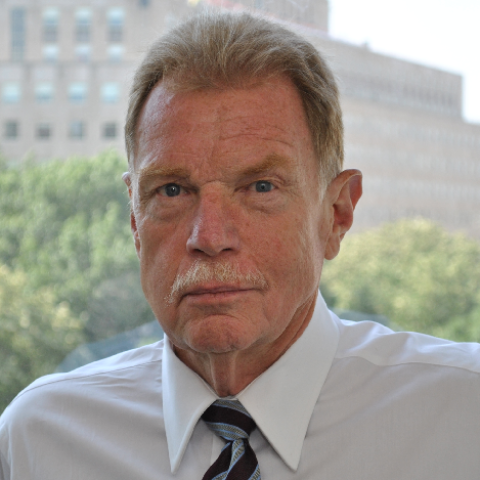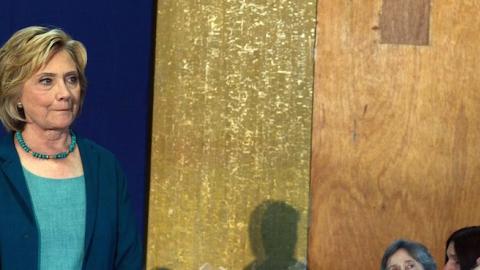No presidential candidate can afford to ignore the drug damage in New Hampshire. Recently, Hillary Clinton found the heroin and methamphetamine epidemics while campaigning in the Northeast. She quickly offered a $10 billion proposal to increase treatment spending — an unserious answer to a crisis she made worse as Secretary of State.
The urgent treatment need in the Northeast will not be met by the Clinton plan. Even if elected, her assistance would be at least two years away. Moreover, Clinton’s proposal drives much of the new funding through “block grants” to states that don’t target treatment to where the epidemic is acute.
Notably, the Clinton proposal is an admission that the Affordable Care Act cannot provide the abundant treatment promised by the White House. More to the point, national surveys show the great majority in need of treatment simply won’t seek it. They are in denial, and that is why drug courts and the criminal justice system are responsible for many, if not most, treatment admissions.
But Hillary Clinton doesn’t understand how today’s criminal justice system works. This is obvious in her claim that a portion of her promised $10 billion would come from ending imprisonment of “low level and nonviolent drug offenders.” As the career prosecutors of the National Assistant United States Attorneys Association documented in detail last July, those sentenced for drug offenses by the federal government “are incarcerated because of drug trafficking crimes, not recreational drug use.” Low-level and nonviolent drug offenders do not go to prison in America today.
Missing from the reports of Clinton’s discovery of the drug abuse epidemics is any mention of the part she played in creating the crisis.
During her time as Secretary of State (January 2009 to February 2013), attention to drug control in Mexico (the source of most heroin and methamphetamine in the U.S.), Afghanistan, and Colombia ceased to be the priority it had been during the Bush administration.
Responsibility is administration-wide, but it was Secretary Clinton who began her tenure by loudly renouncing the drug war and blaming U.S. demand for causing the victimization that is clearly directed by Mexican cartels.
Opium production in Mexico has shot up (at least 50 percent last year), and heroin seizures at our southern border have climbed threefold from 2009 to 2014. An unprecedented supply of potent heroin killed 8,200 Americans in 2013. It turns out that the supply of highly addictive substances actually increases demand — Secretary Clinton had the relationship backward and still does.
Moreover, the flood of heroin is only part of the destruction put in motion by abandoning international leadership on drugs. Methamphetamine production, also focused in Mexico (and fed by chemicals from China), has grown dramatically with seizures at our border increasing more than 400 percent from 2009 to 2014.
Before her arrival, cocaine from Colombia had been reduced by over 60 percent, use in the U.S. dropped by 50 percent. Yet under Secretary Clinton the U.S. supported a new government in Colombia as it unraveled the successful policies built over years and fostered even by President Bill Clinton. Cocaine production has taken off again (rising 48 percent over the past two years). Overdose deaths are rising, while use by college students has shot up 63 percent in the last year alone.
The resurgent cocaine flow has had a devastating effect on stability in Central America, fueling criminal gangs and the flight of migrants.
As drug trafficking was allowed to surge in our hemisphere, we witnessed the precipitous and destabilizing pull-out of U.S. forces in Afghanistan. Afghan heroin production has grown to record levels, funding terrorists, addiction and death. There can be no effective drug control, democracy or development in Afghanistan without security. Clinton failed to make case for a measured transition to Afghan control and now Afghan heroin is in Canada, poised to make our current epidemic much, much worse.
Finally, when the Obama administration suppressed federal law enforcement to enable marijuana legalization, it crippled prevention and treatment efforts and triggered the increasing use of highly-potent marijuana by youth. These irresponsible actions also violated our treaty obligations.
Secretary Clinton received warnings directly from the International Narcotics Control Board of the United Nations that we were undermining global drug control agreements and partnerships—agreements the U.S. carefully built and used for decades to fight the international drug trade. The Clinton State Department simply ignored these warnings and abandoned American leadership.
When Hillary Clinton could have done a great deal to protect Americans from addiction and death, she made us vulnerable by failing in her duties.




















